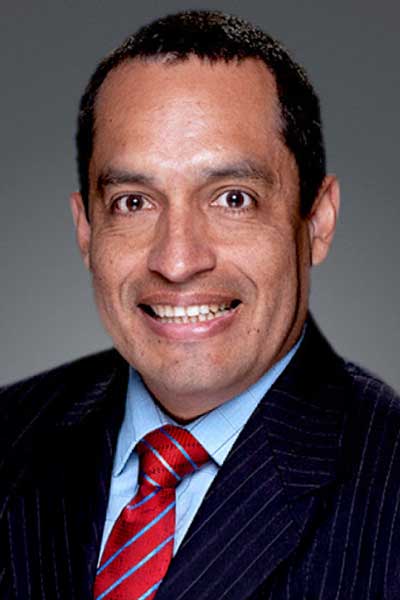
Right ventricular failure is a rapidly progressive, heterogeneous syndrome associated with high morbidity and mortality. Unfortunately, research efforts have focused largely on the left ventricle. This makes it important for ICU clinicians to try to identify right ventricular dysfunction when they assess patients who could have cardiopulmonary diseases, said Jorge Velazco, MD, FCCP.
“A lot of times, we underestimate the right ventricular function and we pay more attention to left ventricular function,” he said. “But in reality, the right ventricular failure could be the culprit for increased morbidity and mortality in many who come to the ICU.”
Dr. Velazco, Assistant Professor at Baylor College of Medicine, will chair the CHEST 2025 session Right Ventricular Failure: From Physiology to Management at 11:15 am CT on Wednesday, October 22, in McCormick Place, Lakeside Center, Room 353A. He will discuss the pathophysiology, etiology, and diagnosis of right ventricular failure.
Manreet Kanwar, MD, of the University of Chicago Medical Center, will cover medical treatment of right ventricular failure in the ICU, including pharmacological therapies. Nicholas Villalobos, MD, of the McGovern Medical School at UT Houston, will present on bedside evaluation using echocardiography, which is used to identify the etiology of the problem and to monitor responses to therapies aimed at recovering right ventricular function. And Steven Hollenberg, MD, FCCP, of the Emory University School of Medicine, will focus on advanced mechanical circulatory support for right ventricular failure, including giving a rundown of devices that help support the right ventricle until it recovers.
“I think it is important for the pulmonary and critical care community to understand that patients as a whole can be treated more in a multidisciplinary, holistic approach if we have a good understanding of heart function in all settings,” Dr. Velazco said.
“Sometimes these things are underscored in a medical ICU setting, whereas we pay a lot of attention to them in the cardiovascular ICU setting,” he added. “I think it’s important for everyone to learn about it, have an open mind regarding this condition, and be knowledgeable enough to diagnose, monitor, treat, and refer as indicated.”

Call for Topics Is Open
Feeling inspired by all the great sessions in Chicago? Help shape the curriculum for CHEST 2026, October 18 to 21 in Phoenix, by submitting topic ideas from areas you’re passionate about, topics affecting your practice, or new technologies you’d like to learn more about. The submission deadline is Tuesday, December 2, at 2 pm CT.


